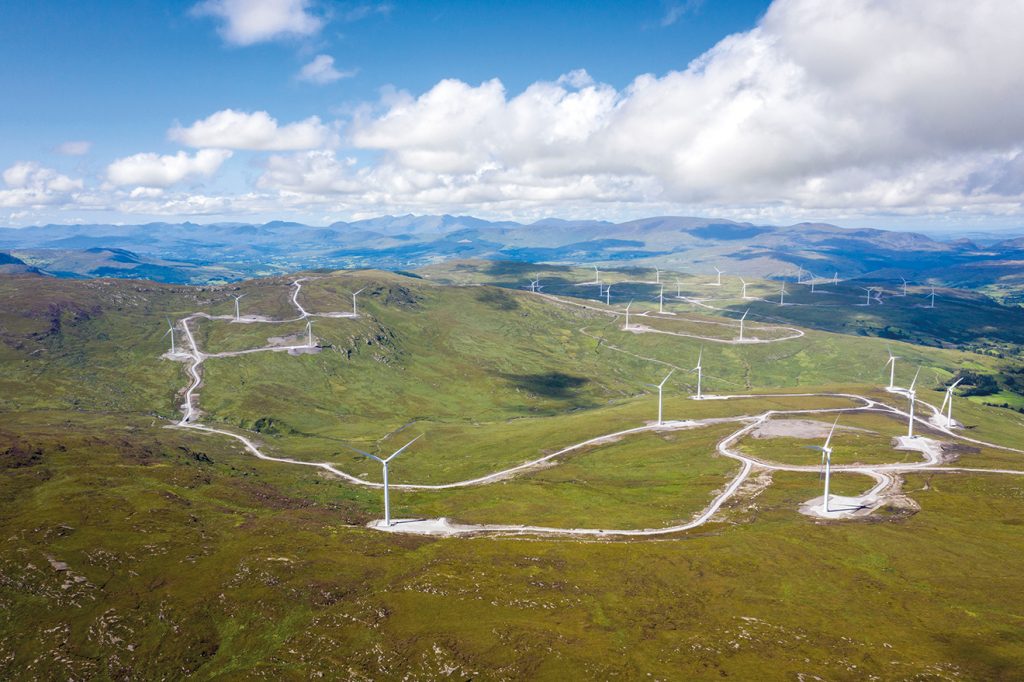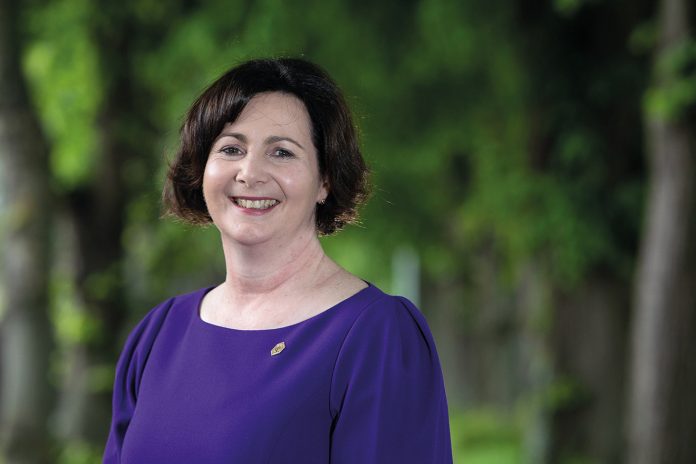Marguerite Sayers is a member of the executive director team at ESB where she manages the company’s customer solutions in such businesses as Electric Ireland, ESB eCars, ESB Energy and ESB Smart Energy Services. In addition to her busy day job, she is an active member and Past President of Engineers Ireland.
In the run up to STEPS Engineers Week 2021, she explains how important it is to inspire the next generation of potential engineers and calls on Ireland’s engineering community to get involved.
Did you always want to work in engineering?
No, I wouldn’t be an engineer at all if it wasn’t for one of the initiatives taken by Engineers Ireland more than 30 years ago. In 1986 they were running an information evening for female STEM students in my hometown of Tralee. As a student I was searching for a career that I wanted to pursue in life, but I couldn’t figure out what it was. Listening to the talk about engineering just ticked all the boxes.
For me there’s a full circle between deciding to do engineering via such an initiative and then having the opportunity to go back to schools to promote engineering.
The STEPS programme isn’t about converting every primary and post-primary school pupil into an engineer, rather it’s about raising the profile and demystifying what engineering is. There’s a lot confusion about what an engineer is and does.
Why should engineers and companies get involved with the programme?
There are many benefits for those who get involved with Engineers Week. You see the excitement and wonder on the faces, particularly of primary children and the genuine careers interest at post-primary, when students are trying to figure out what they want to do. Also, when you’re explaining to somebody why you chose engineering it reinvigorates that joy and interest in your own field of expertise.
From a company point of view, there’s been a 10-11% growth demand for engineers year-on-year over the last number of years. There is an international shortage of engineers who are needed to solve a lot of big problems – including climate change.
For that reason, it’s great for companies, who will be competing for engineers in the workplace, to encourage people to take up engineering as a career and help solve their own long-term recruitment programme as well. It’s also a promotional opportunity to talk about what your company is doing in the community.
Last year, between companies and individuals, there were 980 events around the country and about 92,000 participants – a phenomenal level of interest.
What innovations are coming out of Ireland’s engineering community?
There’s a huge amount going on. A lot of research into autonomous vehicles and a huge amount into micro-electronics.
We’ve pushed the boat out on in terms of the volume of renewables that is connected in the country. It’s very high, relative to the size of electrical load we have. To have almost 40% of our electricity in the south and 47% in the north last year coming from renewables is actually world-leading. Ireland is neck-and-neck with Denmark. An awful lot of research has to happen behind that in order to keep the grids stable while the change is implemented.
There is also a huge level of biomedical research in Ireland. We’re regarded as a centre for excellence – and there is an immense amount of world-leading pharmaceutical work happening here.
Right across the Irish engineering sphere there’s an awful lot going on that’s bit-by-bit moving the world ahead. Sometimes it’s a component of research from Ireland that feeds into a bigger global advancement.
Have there been improvements in the sector in terms of gender equality, do you think?
Overall, the proportion of female graduates from all engineering courses is remaining stubbornly low, at about 13%. That’s why I, and other female engineers are so keen to go out to schools and open the eyes of female students to the possibilities and dispel some of those stereotypes that are out there. Once they hear from qualified female engineers about their positive career experiences, many indicate that they will also seriously consider STEM careers.
The irony is that female students are the most likely to say they want a career that makes a difference. Their automatic choice is medicine and science, both valid careers. Engineering isn’t at the forefront of their decision making process and yet it’s one of those careers that really does help to advance mankind and move things forward – it really delivers for society.
Many solutions that engineers provide are going to be used by the whole population. If you’re not getting ideas from the female perspective to represent that diverse spectrum, then there is an issue.
How does Ireland’s electrical industry benefit from engineering innovation?
There are major opportunities in renewables for electrical contractors. One that I think is huge for Ireland Inc. is retrofitting heating into the housing stock.
We’ve done an awful lot in terms of reducing carbon in electricity generation but the two other areas that we need to focus on are transport and domestic heating. To be in a position where you can provide a design for a retrofit home which involves everything from windows to insulation, solar PV on the roof, a heat exchanger maybe, a storage battery and a heat pump, that’s a game changer. It does two things: improves air quality and addresses climate change but also improves comfort within the home. Lower income households are putting a lot of money into heating their homes; if they had a better quality BER rating they wouldn’t have to put the same costs or effort in.
The Government’s climate action plan mark II is targeting the retrofit of a quarter of Ireland’s homes by 2030 – that offers a massive opportunity for electrical contractors.

Step up
Ireland’s engineering community is currently being called upon to adopt a school in advance of STEPS Engineers Week 2021 to deliver presentations and workshops virtually.
Taking place across Ireland from Saturday, February 27 – Friday, March 5, Engineers Week encourages primary and post-primary students, their teachers and parents to explore the world of engineering as well as highlighting the diverse career opportunities engineering offers. The Engineers Ireland STEPS programme team have created a number of free resources to assist engineers with classroom visits.
Visit www.engineersweek.ie to get involved in Ireland’s largest celebration of engineering.











